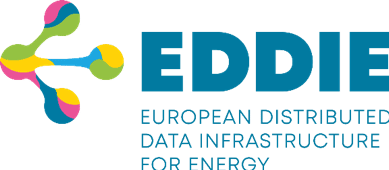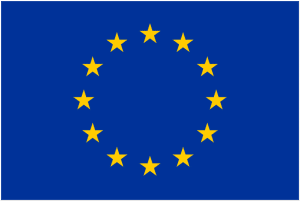A European distributed data-sharing infrastructure for enabling innovative energy services
This is the fourth instalment of the Topic of the Month: Building new knowledge on electricity market design and regulation
Context
The Electricity Directive of the Clean Energy for all Europeans Package established the right, for customers and eligible parties of their choice, to access metering and energy consumption data, as well as data required for customer switching, demand response, and other services. The implementation of this right supports the emergence of new data-driven services and innovative solutions within and beyond the energy sector, which are essential for its deep decarbonisation. However, there is currently no large-scale, uniform, and easy access to consumers’ energy data across European Member States (MSs). This absence is even more relevant when considering data sharing between MSs. The low degree of harmonisation of data access procedures represents an obstacle to the flourishing of cross-border energy services, with negative consequences for the quality and competitiveness of European energy retail markets.
In this Topic of the Month we give insight into the four European Horizon projects that the FSR Electricity Team is currently contributing to.
EDDIE project
The aim of Project EDDIE (European Distributed Data Infrastructure for Energy) is to create a decentralised, distributed, open-source data space, enabling cost-effective and easily accessible smart energy-related services. In line with the Electricity Directive (EU) 2019/944, EDDIE will focus on metering and consumption data.
To enable harmonised and easy access to these data, EDDIE aims to deliver a unified, de-central, and highly scalable European interface – the EDDIE Framework – for validated historical and near real-time energy consumption data from different data sources. In parallel, EDDIE aims to provide an Administrative Interface for In-house Data Access (AIIDA) to facilitate the consent-based use of in-house data sources. Through AIIDA, users will be able to feed in-house data to the EDDIE Framework.

More concretely, EDDIE will primarily deal with two types of data and the challenges that come with their handling:
- Validated historical consumption (and generation from prosumers) data collected in national data sharing infrastructures (DSI), i.e. energy data management environments and online data hubs. The EDDIE framework will communicate with those DSIs, allowing customers to easily access their data and manage their consent to share data with eligible parties. The main challenge here will be the documentation and eventual harmonisation of data access procedures across Member States.
- Non-validated near real-time data. AIIDA is an interface that will be improved during the project to provide customers with the infrastructure to share in-house data streams close to real-time with remote services on a manageable, GDPR-compliant consent basis. In this case, the challenge will be to tackle the lack of streamlined, secure and easy access to measurements of in-house sensors (e.g., IoT devices in households).
EDDIE will align with the ongoing work on the EU Implementing Acts on interoperability and data access (Art. 24 of the Directive (EU) 2019/944). It will also benefit from the interaction with other Horizon Europe projects, in particular int:net and the other Energy Data Space projects: Omega-x, DATA CELLAR, Enershare, and Synergies. The European Commission’s BRIDGE initiative will be an important channel for such knowledge exchanges.
The focus of FSR research in the project
In EDDIE, FSR will build on and expand the work conducted in int:net and other previous projects related to the (dis)incentives for the various actors of the energy system to use data-sharing infrastructures and the associated policy initiatives. This research will be the starting point for the work in EDDIE, where FSR aims to contribute to the analysis of the regulatory framework relevant to European energy data-sharing infrastructures. Particular synergies with the project int:net will be explored, thanks to its focus on the multiple frameworks used to characterise interoperability issues. In fact, EDDIE will touch upon interoperability issues in its ambition to deliver a unified and harmonised framework for data access across MSs. FSR’s experience in setting up fora for discussion gathering the point of view of different categories of stakeholders, such as energy companies, communities, and system operators, will support this process.
Research set-up
FSR has a key role in the multi-disciplinary analysis of the EDDIE Framework and AIIDA from a conceptual, economic, human-centred, and regulatory point of view. Two research streams will be considered more in-depth:
A) Legal grounds and constraints for data-sharing infrastructure
-
- legal grounds for data access and data sharing
- boundaries of data-sharing activities and unbundling implications
- data privacy and protection
B) Economic regulation for energy data-sharing infrastructure
-
-
- output regulation of the data-sharing infrastructure
- tariff design for access to the data-sharing infrastructure for eligible parties
- use of non-validated data and interaction with settlement rules.
-
The FSR team is currently in the scoping phase of the project, trying to build a general overview of these topics and their relevance for practitioners. In performing this initial research, FSR will first focus on the existing European legal and regulatory framework for consumer data sharing in the energy sector. Early results will be shared with the project’s partners. Feedback on this exercise and the ranking of research priorities will be sought among relevant stakeholders (metered data administrators are a primary target in this regard). Based on this interaction with the world of practice, FSR and its research partners will focus on a subset of the issues mentioned above and explore them at length during six months long research cycles.
FSR will also have a role in the exploitation and sustainability of the project. In particular, it will contribute to the pilot projects employing the EDDIE framework and to the establishment of exploitation strategies for future uses or extensions. Brainstorming activities will take place to explore opportunities to expand the framework’s usage, for instance, making start-ups interested in and actively participate in the framework development.
Expected research results
Our work within EDDIE aims to produce an analysis of the European regulatory framework relevant to the uptake of energy data-sharing infrastructures and identify options in policy and regulation to enhance the incentives for the key actors to use such infrastructures. We also aim to translate the technical results of the project into a language understandable by policymakers and involve decision-makers in discussing the future uses and extensions of the EDDIE framework.
Keep up with the research and the next steps of the project!
Project EDDIE has just started and will run until December 2025, with 16 official partners from 8 EU MS. They represent a wide variety of actors, from scientific and educational institutions to software developers, and from data-sharing infrastructure operators to energy service companies.
Keep an eye on the project EDDIE website and LinkedIn page for any update.


EDDIE project has received funding from the European Union’s Horizon 2020 research and innovation programme under grant agreement No 101069510.







